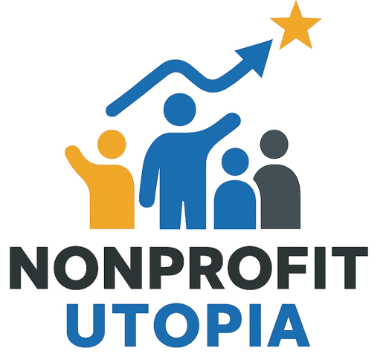One day soon, we will all focus as much on the health and well being of nonprofit staff (including leaders) as much as we do on evaluating their organization solely on the impact they have in communities that are victims of systemic injustice or marginalization. Though I work with corporate and nonprofit clients, at Justice Informed, we’ve found that nonprofits tend to focus so much on hiring and recruiting people of color, women, LGBTQ+ persons, and those with disabilities into nonprofits, then turn the work immediately outside–asking them to sacrifice and deal with interpersonal problems and practices that most people would never tolerate–while they produce impact for everyone except themselves.
The problems and examples are many.
Human service organizations often can’t increase salaries due to funding limitations. They need to double down on their culture strategies, as data from Glassdoor shows that healthy workplace culture is the #1 driver of workplace happiness…more than salary and senior team quality. We’ve all heard the phrase “you couldn’t PAY ME to work THERE” for a reason.
Foundations continue to increase scrutiny and elevate their own ethics by speaking about how grantees need to invest in culture, DEI, and external impact while not including change management funds or assessment funds for needed staff-focused culture support.
Nonprofit leaders are exhausted, often promoted for merit while still holding the challenges of their minoritized identities but being seen as uniquely different and holding privileged power. The current landscape for discussion about nonprofit workplace culture seems to constantly discuss the need for diverse senior leader representation, but with very little sympathy or responsibility on non-leadership teams to practice empathy, responsibility, and healthy team practices in service of their tired leaders who are facing funding cuts, stigmatization, imposter syndrome, and more.
As Nonprofits continue to be the vanguard for workplace diversity–nonprofits hire and retain significantly more women and people of color than corporate workplaces–they are also thus the vanguard for the complexities of diversity. Meanwhile, they often spend the least time and funds on workplace culture to drive increased employee retention, reputational security, and external impact. The focus on identity has given us much, but it has also shown us how unprepared many organizations are for mere diversity (let alone equity or inclusion).
If nonprofits can get culture right, they’ll teach and show our entire world so much more than just how to create an impact. They could be the very model for the beloved community we’ve all been saying we need.
This is something I’m committed to figuring out with other concerned and ambitious persons. Nonprofit leaders and staff (and their funders), tap in: Comment your experience with workplace culture: how did it go right or wrong, in your work experiences?

Xavier Ramey is the Chief Executive Officer of Justice Informed, a social impact consulting firm based in Chicago, IL. His work centers on creating and deploying innovative new ways to employ people-inclusive strategies for social change. His methodology often incorporates my strong understanding of economic markets, human development, race and identity theories, cross-functional strategy, and draws upon data to develop or strengthen programs that make life better for all persons.
Originally Published On LinkedIn.

Justice Informed
Justice Informed Companies and strategies focus on igniting processes, people, and culture that are strategically positioned to change the work of business, philanthropy, and nonprofits to include, empower, and ignite the dynamic, interconnected challenges we all face in the 21st century. Learn more here.



